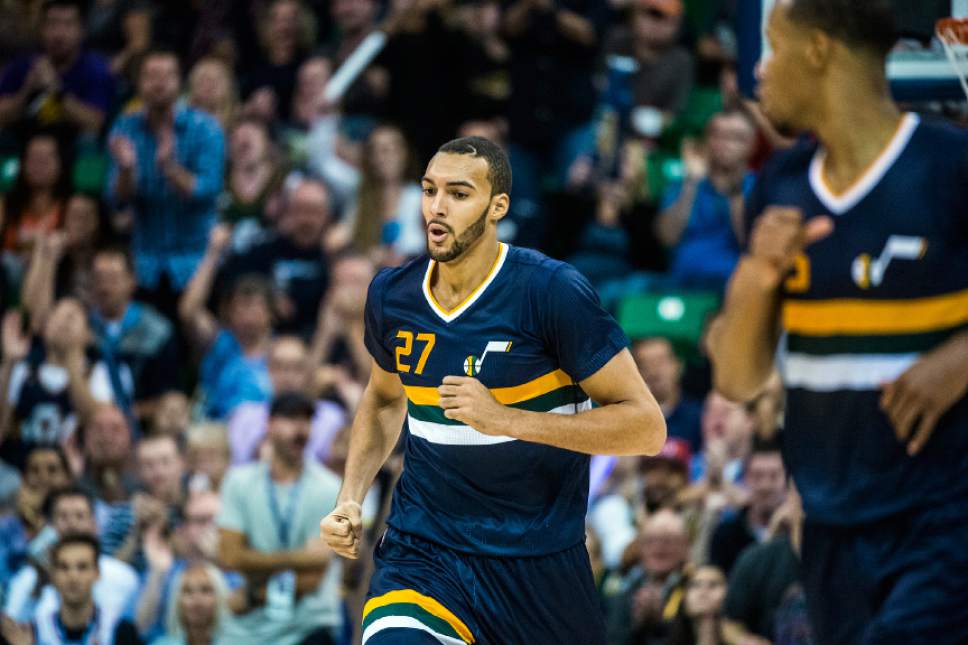This is an archived article that was published on sltrib.com in 2016, and information in the article may be outdated. It is provided only for personal research purposes and may not be reprinted.
San Antonio • Rudy Gobert celebrated the news by going out to a nice dinner with his mother this weekend in San Antonio, at a place recommended by his foodie countryman Boris Diaw.
And, yes, Gobert picked up the check.
But as the ink dries on his new four-year extension, the Utah Jazz's $100-Million Man says he's still hungry. Never mind that, with a few pen strokes this week, Gobert had positioned himself to become the highest-paid player in franchise history, the Stifle Tower says money won't change him, that the best is yet to come.
"I know I'm not the player I can be yet," Gobert said. "I still got a lot of work to do. It only starts now."
"People now look at me as a $100-million player...I always put pressure on myself to be good so I don't think it's going to change anything" pic.twitter.com/UShatsIbrX
— Aaron Falk (@aaronfalk) November 1, 2016
Gobert's game has grown by leaps and bounds since he was drafted 27th overall in 2013 (a selection he said he knew was too low at the time and a source of motivation to this day) and traded to Utah. He has become a leading candidate for Defensive Player of the Year and slowly added to his offensive repertoire. So with the NBA salary cap skyrocketing thanks to an influx of television money and Gobert eligible to extend his bargain-basement rookie contract, the Frenchman has suddenly struck it rich.
His deal, worth up to $102 million, would not only make him the highest-paid player on the Jazz's current roster, but ever. The Jazz's leading scorer of the past three seasons, Gordon Hayward, currently collects about $16 million annually. Hall of Famer Karl Malone topped out at $19.2 million during his final season in Salt Lake City.
With that money, Gobert said, comes the responsibility to lead, but the young center said no paycheck will be able to apply more pressure to succeed than he already places on himself.
"People now look at me as a $100-million player," he said. "But for me, I always put pressure on myself to be good, so I don't think it changes anything."
Jazz coach Quin Snyder said he feels a bond with Gobert, who rose to prominence in the NBA midway through Snyder's first season coaching in Utah. It was Snyder who phoned Gobert to let him know the Jazz and his agent were in the process of finalizing the deal.
"It was a pretty special moment," the coach said.
But it's not the moment Snyder and Gobert will stay focused on for long.
"It's not an endpoint," Snyder said. "It's a beginning."
The endpoint, Gobert hopes, will come later. It is why he had told the Jazz all along he wanted to workout a deal to ensure he would be in Utah for years to come.
"I love the organization. I love the coach. I like to live in Utah and I like the team we're building," he said. "My goal in my career is to get a championship and I think we're going in the right direction, and I want to be part of that."
— Aaron Falk



